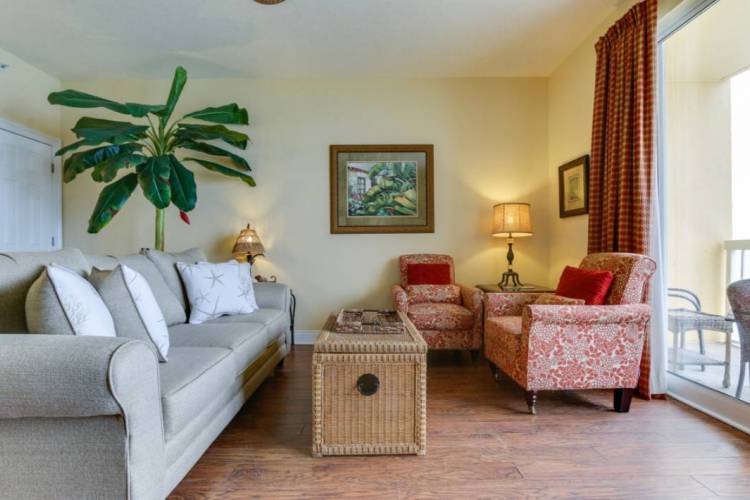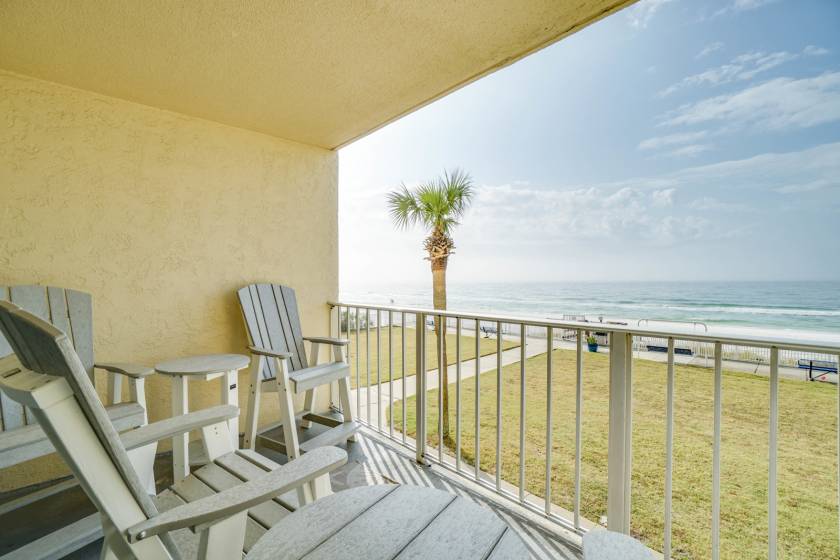Short vs. Long Term Rentals: Pros & Cons

When it comes to rental properties, there are two main types: short-term and long-term. Short-term rentals are typically vacation condos or homes, while long-term rentals are usually apartments or houses rented out on a monthly or yearly basis. Each type of rental has its own set of pros and cons.
If you are thinking of investing in real estate in Florida, it is important to know the difference between these two types of rentals. There are many factors to take into consideration, such as where to list your property, what type of tenant you are looking for, and what you hope to get out of the rental.
Which one is right for you? That depends on your needs and what you're looking for. In this blog post, we will discuss the advantages and disadvantages of each type of rental property, so that you can make an informed decision about which one is best for you.

What is a short-term rental or vacation rental?
Short-term rentals are a great option if you're looking for a place to stay for a few days, weeks or even months. The rates are usually more expensive than long-term rentals, as they provide lodging for only a few days or weeks, allowing for full flexibility in terms of length of stay. Most short-term rentals mainly target the travel sector and are listed as vacation rentals, being a very popular alternative to hotels.
Short-term rentals are typically listed on vacation rental websites, such as Airbnb or VRBO. The main advantage of a short-term rental is that you can make a lot more money in a shorter amount of time. However, the downside is that you will have to deal with a higher turnover rate and more maintenance issues.
Pros of vacation rentals
In the last 20 years, we have seen a huge boom of home owners listing their properties as vacation rentals due to the rising popularity of websites such as Airbnb or VRBO. The main reason for this is that it can be quite profitable. Let's take a closer look at some of the advantages of vacation rentals:
Higher income with premium rental rates
The main advantage of vacation rentals is that you can make more money in a shorter amount of time than with long-term rentals. This is probably the biggest advantage of vacation rentals. This is because vacationers are usually willing to pay more per night than someone who is looking for a long-term rental. You can charge higher rates for a shorter stay, and because you generally have multiple guests throughout the year, you can make a good income from your rental property.\
Booking Flexibility
Another advantage of vacation rentals is the booking flexibility. You can generally be more flexible with your rental dates and times, as you are not renting to someone who needs a place to live for an extended period of time. This means that you can take advantage of last-minute bookings and fill up your calendar with guests even if it's last minute. Plus, having a short-term rental even allows you take advantage of blocking off certain dates in your calendar and using your own property for your personal use.
Tax Deductions
Another great advantage of vacation rentals is that you can take advantage of some tax deductions. When you own a rental property, you are allowed to deduct certain expenses related to the property, such as mortgage interest, repairs and maintenance, insurance, and even depreciation. This can help offset the cost of owning your rental property and make it more profitable in the long run.
Less Damage to your Property
Typically, vacationers are more careful with your property than someone who is living there long-term. They know that they are only staying for a short period of time and they want to make sure that they don't damage your property so that they can get their security deposit back. This means that you will likely have less wear and tear on your property and you won't have to deal with as many repair and maintenance issues.
Cons of vacation rentals
While there are many advantages to vacation rentals, there are also some disadvantages that you should be aware of. Before you decide to list your property as a vacation rental, let's take a look at some of the cons of vacation rentals:
Higher turnover rate
One of the biggest disadvantages of vacation rentals is the higher turnover rate. This means that you will generally have more guests coming and going throughout the year, which can be a lot of work. You will need to constantly clean and prepare your property for each new guest, and you may even have to deal with last-minute cancellations.
Property Management
Another downside of vacation rentals is that it demands much more time to manage the property due to its high turnover rate. You will likely need to hire a property management company to help you manage your rental. This can be an additional cost that you weren't planning on, but it's generally worth it so that you don't have to deal with the day-to-day management of your rental yourself.
More maintenance issues
Another disadvantage of vacation rentals is that you will likely have to deal with more maintenance issues. This is because it is very important to keep your property looking its best in order to guarantee new bookings and to not receive negative reviews. This means that you will need to be prepared to deal with any repair or maintenance issues that may come up, and you may even have to hire someone to help you manage your property.
Inconsistent Income
A final disadvantage of vacation rentals is that your income can be quite inconsistent. This is because you are relying on people to take vacations and book your property, which can be affected by many factors such as the weather, the economy, and even world events. This means that there may be times when you are not making any money from your rental property, and you need to be prepared for this.
Overall, there are both advantages and disadvantages of vacation rentals that you should consider before listing your property. While vacation rentals can be a great way to make some extra money, you need to be aware of the cons of vacation rentals so that you can be prepared for them.

What is a long-term rental?
Long-term rentals are a good option if you're looking for a place to live for an extended period of time. They are perfect for those who are looking for stability and do not mind signing a lease agreement. Long-term rentals are usually listed on apartment or house rental websites, such as Zillow or Trulia.
The main advantage of a long-term rental is that you will have a stable income stream and fewer maintenance issues. However, the downside is that you will not be able to make as much money in a shorter amount of time.
Pros of long-term rentals
Long-term rentals have many advantages that make them a great option for those looking for stability. Let's take a look at some of the pros of long-term rentals:
Stable Income Stream
One of the biggest advantages of long-term rentals is that they provide a stable income stream. This is because you will be signing a lease agreement with your tenant, and they will be responsible for paying their rent on time every month. This can give you peace of mind and help you budget better since you will know exactly how much money you will be bringing in each month.
More Simple to Manage
Another advantage of long-term rentals is that they are generally more simple to manage. This is because you will have fewer guests coming and going, which means less work for you. You also won't need to worry about last-minute cancellations or constantly cleaning and preparing your property since your tenants will be living there for an extended period of time.
No Need to Furnish
Most long-term rentals usually do not include any furniture which means that you won't need to worry about furnishing it. This can save you a lot of money and time, as well as the hassle of having to find furniture that meets your tenants' needs.
Fewer Maintenance Issues
Another advantage of long-term rentals is that you will likely have fewer maintenance issues. This is because your tenants will be living in the property for an extended period of time and they will be taking care of it. Additionally, most lease agreements include a clause that states the tenant is responsible for any damage they cause to the property. This means that you won't have to worry about repairing any damage that your tenants may cause.
Cons of long-term rentals
Of course, there are also some disadvantages of long-term rentals that you should be aware of before signing a lease agreement. Let's take a look at some of the cons of long-term rentals:
Less Profit Potential
One of the biggest disadvantages of long-term rentals is that they have less profit potential. This is because you will be signing a lease agreement with your tenant, which means you will only be able to increase the rent by a certain amount each year. Additionally, you won't be able to rent your property out for short periods of time, which can limit your earning potential.
Less Flexibility
One of the biggest disadvantages of long-term rentals is that they offer less flexibility. This is because you will be signing a lease agreement with your tenant, which means they will be living in the property for an extended period of time. This can make it difficult to make changes to the property or even sell it, since you will need to find a new tenant first.
Lengthier Process to Find Tenants
Another disadvantage of long-term rentals is that they can be difficult to find tenants for. This is mainly because you want to make sure that the tenant staying at your property has a stable income, good profile and is a good fit for your property. Additionally, it can take longer to find a long-term tenant since they will be living in the property for an extended period of time.
More Difficult to evict tenants
Another downside of long-term rentals is that they can be more difficult to evict tenants. This is because you will be signing a lease agreement with your tenant, which gives them certain rights. Additionally, the eviction process can be lengthy and costly, which you will need to factor in if you are considering a long-term rental.
As you can see, there are both advantages and disadvantages of long-term rentals that you should consider before signing a lease agreement. While long-term rentals offer some great benefits, such as more stable income and fewer maintenance issues, they also have some drawbacks that you should be aware of.
Summary
So, what's the verdict? Are short-term or long-term rentals right for you? Well, that depends on your individual situation. By following these criteria, you can help make the decision that is best for you. By assessing your long-term goals, knowing your earning potentials and understanding your management capabilities and skills, you will be able to find the rental strategy that best meets your needs.
